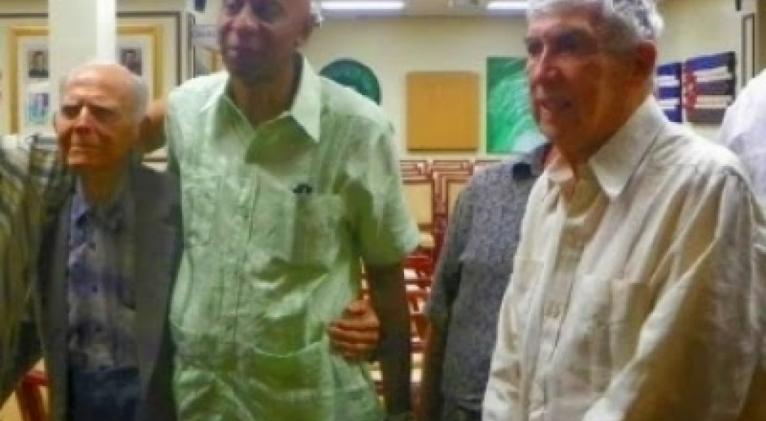Cuba - "Dissident": Their Gradual Fading
especiales

They are essentially annexionists who, ultimately, are only a foreign body within the core of the Cuban society.
A New Herald columnist, Daniel Morcate, repeated his cry for the widespread scorn they inspire.
He did it this Thursday under the title: "Voices of our Conscience", where he mentions their absence on the current Cuban-American negotiation process.
As Morcate wrote, Obama made a historical mistake when excluding the “domestic opposition" from the dialogue on the relationships and the future of Cuba.
In opposition he says that, as he referred to the issue, it won’t happen again, but it does.
He explains that, even better, it was approached by his friend and famous man of the U.S. special services, Carlos Alberto Montaner.
He clarifies that this time he would talk about the repercussion of what happened for the "dissidence."
Firstly, Morcate asserts, they should intensify their efforts in joining the dialogue.
According to his point of view, their roles as facilitators on the democratic change don’t allow them to keep being excluded.
Although, he thinks, the most probable outcome, after they have fulfilled that essential role, their fellow countrymen would repay them with "ingratitude and resentment."
Domestic opponents, he adds, are very similar to the free men and women living in the island.
With their daily attitude they show to the majority of Cubans which the road to freedom, he wrote.
However, for that to happen, it’s indispensable that they incorporate to the political processes in which the future of the island is planned.
But how to do it when they are excluded regarding such steps, like the governments of Havana and Washington have done in their official talks?
Hence Daniel Morcate implicitly accuses the United States of hindering what they call the road toward to freedom in Cuba.
Some members of the opposition agreed to meet North American officials who lavish them with excuses and promises of “not forgetting the dissidence."
There is their admitted Achilles’ heel.
They are essentially annexionists who, ultimately, are only a foreign body within the core of the Cuban society.
Some examples, corroborate that.
Global Research website published an article under the title:”Cuban dissidents financed by the United States."
It received a large number of hits on April 16, 2010 and its author was Salim Lamrani.
The latter began quoting the interview he made to Wayne Smith, former ambassador of the White House in Cuba.
He declared that it was illegal and reckless –like Washington does- to send money to the "dissidents."
He added that the United States declares its intention of overthrowing the Cuban government and on the other hand it proposes that one of the roads to achieve this is to provide resources to the dissidents.
Smith reasons, this puts them immediately as hired "agents of a foreign power" that attempts to overthrow their own government."
An employee of that media (Yoani Sánchez) had a discrepancy with the former North American ambassador.
What did she say? I believe it has presented itself the financing of opposition by the United States as a reality, "while this is not the case."
Nearly eight months later, December 22, "Rebellion" commented in Madrid:
For half century Washington’s foreign policy towards Havana whose objective is to "get a régime change", is based on two main pillars.
The first one, the imposition of drastic economic sanctions that affect the entire Cuban society, and the second to organize and finance a domestic opposition.
Almost three months ago, February 15, the publication Havana Times wrote: Funds to Promote Democracy in Cuba. List of beneficiaries.
It was signed by Tracey Eaton, explaining that the National Foundation for Democracy is an important receiver of the North American government.
The aforementioned Foundation resides in Washington and uses part of that money in making programs "on the democracy in Cuba."
The Havana Times another newspaper named the five organizations, groups or companies that received more funds:
Cuban Democratic Directorate; International Group for the Corporate Social Responsibility in Cuba; Daily Association of Cuba; Cubanet News, and People in Need.
About two months later, Progreso Semanal revealed in Miami that since 1996 about a thousand million dollars were invested in schemes on the democracy in Cuba.
Who were involved in such a propagandistic orgy?
The Department of State, the Agency for International Development (USAID) and the National Foundation for Democracy.
Also, the Board of Governors of Broadcasting that supervises Radio and TV Martí.
Then it’s comprehensible that Cuba and United States have not included in their process of gradual approach those who would take out the seriousness of these talks.













Add new comment